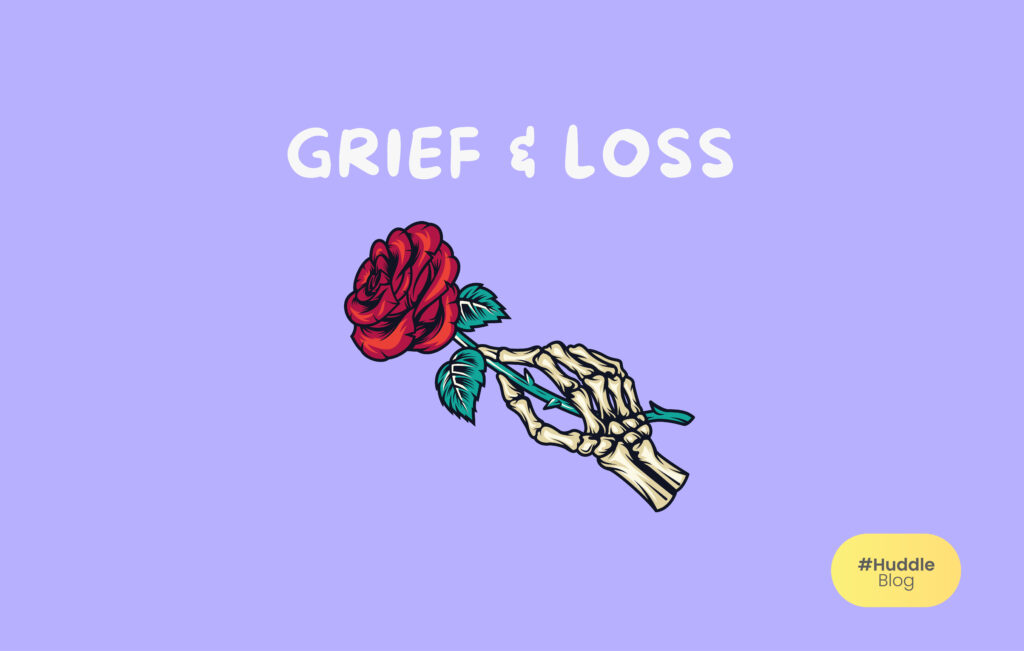Grief is a series of unpleasant and uncomfortable reactions to loss. It is a process that is inevitable in every human life and it comes in many different forms such as the loss of a pet, a loved one, our livelihoods or a relationship. The reactions that we have are personalised based on our culture and beliefs. When bringing up the topic of grief, we have in mind the famous theory better known as the 5 Stages of Grief coined by psychiatrist Elizabeth Kubler Ross. Denial, anger, bargaining, depression, acceptance. However, there is no fixed series of events that occurs during the grieving process.
The emotions that arise differs based on the nature of our loss but the pain that we feel as a result of these emotions is universally recognised. More often than not, the pain comes as a sudden surge or an explosion of all the 5 stages combined in one single moment. It is the immense concoction of emotions that makes us feel so terrible. This pain exceeds our mental understanding and seers through our body almost like we\’re being punched over and over. We then find ourselves in a disorientated and destabilising state of mind, not knowing how to proceed with life. Understanding how our mind and body function can help us go through the pain with more compassion and empathy. There is a reason for this feeling and it is our innate coping mechanism kicking in and protecting us.
Our way of coping starts with the initial shock and yearning for that person to come back into our lives. All our senses are on high alert and we soon find ourselves drawn to their belongings or places that we\’ve been together. This mix of shock, heightened alert and intense sadness is our evolutionary response that increases our chance of survival. Back in our hunter-gather days, protecting our tribe and taking care of each other in the community is a vital aspect of surviving in the wild. We look out and protect one another. When we find that one member of the tribe is missing, our instinctive nature is to find that person. Our brain perceives this situation as a threat to survival and activates the sympathetic nervous system, also known as the fight/flight/freeze response. All our senses are heightened to give us the best advantage of finding our loved ones. Our cognitive system struggles to differentiate between a physical loss or a metaphorical loss in the sense that they have passed away or moved on.
Next comes the rumination process and a new emotion joins in – Guilt. We beat ourselves up about what we could have done better, what went wrong or what we could have done in the time that we had with them. Again, these feelings are not in vain. Guilt is a strategy we have adopted through evolution that helps us learn from the pain such that we do not repeat our mistakes again. It is an opportunity for reflection and understanding the fragility of life.
The reason why these traits are still present in our bodies goes to show that they are necessary for the growth and long term survival of our species. They have been passed down through the generations and on to us because they are advantages to us in some ways. We just need to understand its purpose and learn how to regulate our emotions. Our bodies are tuned to allow a specific level of emotional surge depending on how much we can handle at each juncture. Let the pain be a reminder of how much you have loved. We can always find joy through grief knowing that it is the reason we have the capacity to love, empathise and have meaningful relationships with those around us.






